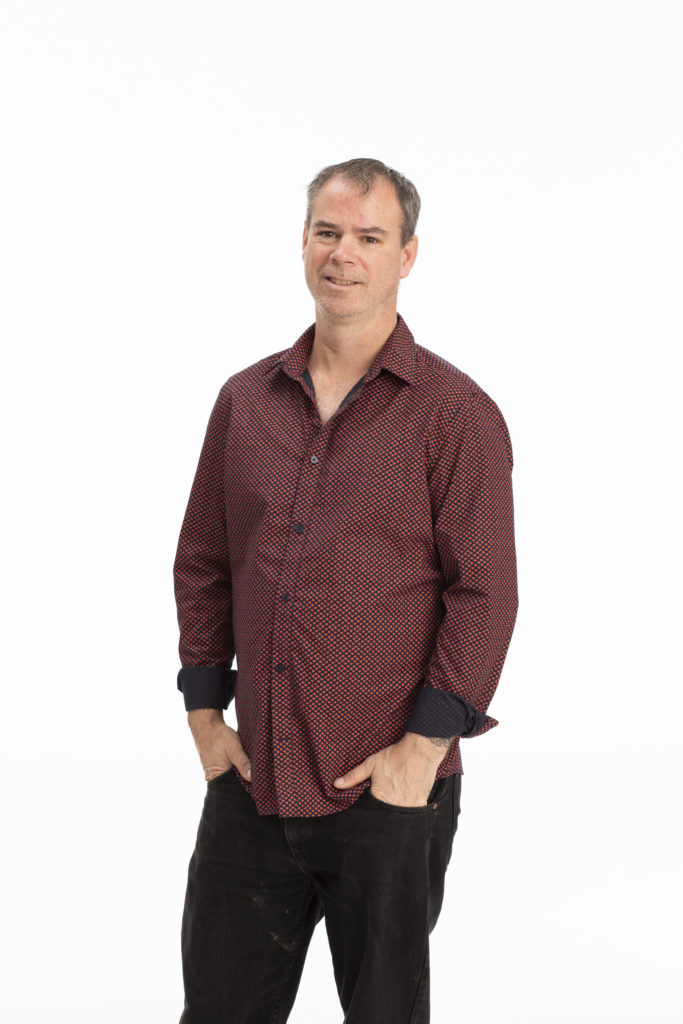Meet the Research Leaders: Bruce Reilly, JD
Interviewed by Maria Bertrand

“I was a lawyer before I was a lawyer”
I’m Bruce Reilly. I’m the Deputy Director of Voice of the Experienced. I’m also at another organization called Voters Organized to Educate (VOTE). I come to the work that I do from growing up in foster homes, being homeless, going to prison for 12 years, getting out on parole, and then I moved to New Orleans to go to the one law school that admitted me.
I was a former jailhouse lawyer, which is when you’re on the inside and everyone comes to you and says, “Hey, here is my case,” or, “I gotta write a letter to the judge.” All the different issues that people tangle with, they would come to the guy who can write the petition for you, do the research. I was a lawyer before I was a lawyer.
C4 Team Louisiana: The Beginning
Our fellowship is actually community-led. My research fellow partners are Andrea Armstrong, who’s a professor at Loyola Law School. She’s long been a VOTE member.
And then Ashley Wennerstrom, who’s a Professor of Public Health at LSU (Louisiana State University). She got involved with VOTE just as a community person who’s like, “How can I help?” No ego. One of Ashley’s ways that she came to this work was actually being there for someone who was a political prisoner, Herman Wallace. She built a relationship with Herman through the Angola Three Project.
VOTE serves as this hub for so much of the work, and our project is really a project we’re already working on. Our project asks: What is the relationship between healthcare and prisons, and how might we show it, undo it, reframe it?
C4 Team Louisiana: Rooted in the Community
For our team, it’s really rooted in, what does VOTE want? If we need to do something, it’s really easy to just make it happen from the community partner standpoint. I’m always trying to be mindful not to abuse my authority or my reach or any of that kind of stuff. It does make it easier when I do work with brilliant people like Ashley and Andrea who are really top of their game, and so we don’t really have any tugs of war. We know what each other is really expert in or knowledgeable about.
The Role of Academic Institutions in the Community
I think it’s important for every institution, every professor, every grad student, every department head to be saying, “What am I doing for this city, for these people?”
Sometimes community partners need the space to be right. Maybe they need some positive reinforcement. A lot of us have been told that we’re not the expert or so-and-so’s the expert. I think that for a lot of organizations like ours, we’ve had to be the expert for years. We were the only person people could rely on.
Listen to Bruce’s full interview below. Editors note: This interview contains strong language (swearing) in several places.
*Interviews conducted and transcribed by Maria Bertrand, MPH ‘21. This blog is a condensed version of the initial interview. Bruce Reilly reviewed and approved this blog.
 Bruce Reilly is an IRL fellow from Cohort 2019-2022 of Interdisciplinary Research Leaders (IRL). To learn more about Bruce and Team Louisiana, read about their research project: Examining the effects of carceral exposure on health services use: Implications for policy and service coordination.
Bruce Reilly is an IRL fellow from Cohort 2019-2022 of Interdisciplinary Research Leaders (IRL). To learn more about Bruce and Team Louisiana, read about their research project: Examining the effects of carceral exposure on health services use: Implications for policy and service coordination.
The views represented in this post are those of the authors, not of Interdisciplinary Research Leaders or the Robert Wood Johnson Foundation.

